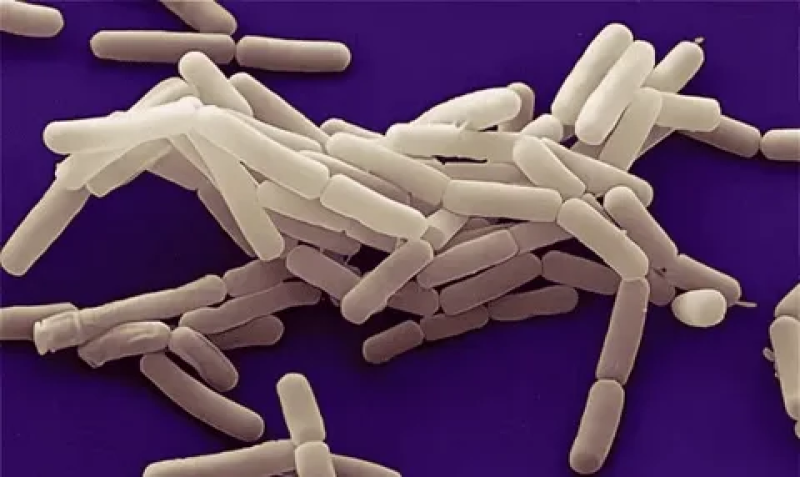Understanding Bacillus Subtilis: A Versatile Microbial Workhorse
Bacillus subtilis is a gram-positive, rod-shaped bacterium widely recognized for its ability to form resilient endospores, enabling survival in harsh environmental conditions. This microorganism naturally inhabits soil and the gastrointestinal tracts of various animals, making it a common subject of study due to its adaptability and multifunctional roles. Notably, Bacillus subtilis is non-pathogenic, granting it significant importance across diverse industrial and biotechnological processes. Its genetic tractability and ability to secrete enzymes in large quantities have rendered it a valuable model organism in microbiology and biotechnology research. Traditionally associated with agriculture as a biocontrol agent, its extensive enzyme production capabilities and robust nature have paved the way for its incorporation in food, pharmaceutical, and environmental sectors.
Industrial Enzyme Production Driven by Bacillus Subtilis
One of the primary applications of Bacillus Subtilis revolves around the production of industrial enzymes, including proteases, amylases, and lipases. These enzymes are integral to manufacturing processes in detergent formulations, food processing, textile treatment, and paper industries due to their efficiency in catalyzing biochemical reactions under variable conditions. For instance, proteases derived from Bacillus subtilis are used to break down proteins in laundry detergents, enhancing stain removal at lower temperatures and reducing energy consumption. Amylases facilitate starch breakdown in baking and brewing industries, improving texture and flavor profiles of final products. The microorganism’s ability to produce these enzymes on a commercial scale with cost-effectiveness makes it a central figure in enzymatic application markets. Additionally, its robust secretion system minimizes downstream processing costs, streamlining production and enhancing overall process economics.
Role of Bacillus Subtilis in Probiotic and Health Supplement Markets
Bacillus subtilis strains have increasingly gained attention in probiotic formulations due to their resilience in the gastrointestinal environment and capacity to promote gut health. Unlike many lactobacilli, its spore-forming ability allows survival through acidic stomach conditions, ensuring colonization in the intestines. This trait positions Bacillus subtilis as an effective probiotic supplement, supporting digestion, enhancing immune response, and maintaining microbiota balance. The bacterium’s role extends towards reducing intestinal infections and promoting nutrient absorption, vital for overall well-being. Research indicates its potential to modulate immune responses and produce antimicrobial compounds that inhibit harmful pathogens. The growing consumer demand for natural and efficient probiotic solutions contributes to expanding markets for Bacillus subtilis-based supplements, reflecting substantial commercial growth potential in the nutraceutical sector.
Environmental Applications: Waste Management and Bioremediation
Bacillus subtilis plays a crucial function in environmental biotechnologies, particularly in waste degradation and bioremediation. Its ability to produce a variety of extracellular enzymes facilitates the breakdown of organic pollutants, including agricultural residues, industrial effluents, and toxic compounds. These properties allow its integration into bioaugmentation strategies for soil and water treatment, enhancing microbial consortium efficiency in pollutant degradation. The bacterium’s role in composting accelerates organic matter decomposition, contributing to sustainable waste management practices. Furthermore, Bacillus subtilis exhibits potential in treating heavy metals and other hazardous substances through bioadsorption and enzymatic transformation mechanisms. This versatility aligns with increasing environmental regulations and the pursuit of eco-friendly technologies, driving commercial interest in microbial solutions featuring Bacillus subtilis for industrial waste treatment.
Genetic Engineering and Advanced Biotechnological Uses of Bacillus Subtilis
Due to its well-characterized genome and amenability to genetic manipulation, Bacillus subtilis serves as a pivotal chassis organism in synthetic biology and metabolic engineering. Scientists leverage this bacterium to produce recombinant proteins, biofuels, and pharmaceuticals with enhanced yields and tailored functionalities. The ease of gene editing coupled with safe handling profiles opens doors for innovative bioproduct development, including vaccines, antibiotics, and biodegradable polymers. Moreover, its natural secretion system simplifies protein purification processes, favoring industrial scalability. Recent advancements focus on optimizing metabolic pathways within Bacillus subtilis to improve substrate utilization and product formation, underscoring its significance in research and commercial production pipelines. These capabilities position Bacillus subtilis as a cornerstone organism for sustainable and efficient manufacturing platforms in the biotechnology industry.
Navigating Market Trends and Comprehensive Reports on Bacillus Subtilis Applications
Insights into current market dynamics, future growth prospects, and competitive landscapes associated with Bacillus subtilis are available through detailed industry and market research reports. These reports extensively analyze segment-wise applications, regulatory frameworks, technological advancements, and regional market opportunities within biotechnology, agriculture, and pharmaceutical sectors. For stakeholders seeking in-depth data on Bacillus subtilis production capacities, downstream markets, and innovation trends, specialized market intelligence documentation provides critical guidance for informed decision-making. Such resources facilitate understanding of emerging product developments, investment potentials, and strategic partnerships driving the expansion of Bacillus subtilis-based technologies worldwide. Continuous monitoring of these insights supports businesses and researchers in capitalizing on evolving demands and regulatory environments in global markets.
Bacillus Subtilis as a Pillar of Sustainable and Innovative Bioprocesses
Bacillus subtilis exemplifies a microorganism whose multifarious capabilities have far-reaching implications across various industries. From its robust enzyme production and probiotic potential to environmental remediation and genetic engineering applications, it continues to be a focal point in fostering innovation and sustainability. Its integration into commercial products and processes responds to increasing consumer and regulatory pressures for eco-friendly, efficient, and health-promoting solutions. Market trends underscore the growing adoption of Bacillus subtilis-derived products, highlighting its relevance in the current and future biotechnology landscape.
Get This Report in Japanese Language: バチルス・サブティリス
Get This Report in Korean Language: 바실러스 서브틸리스
Read More Articles Related to this Industry- Recent developments in Anti Venom Industry
About Author:
Ravina Pandya, Content Writer, has a strong foothold in the market research industry. She specializes in writing well-researched articles from different industries, including food and beverages, information and technology, healthcare, chemical and materials, etc. (https://www.linkedin.com/in/ravina-pandya-1a3984191)
